
7 Tips to Keep High BP in Check
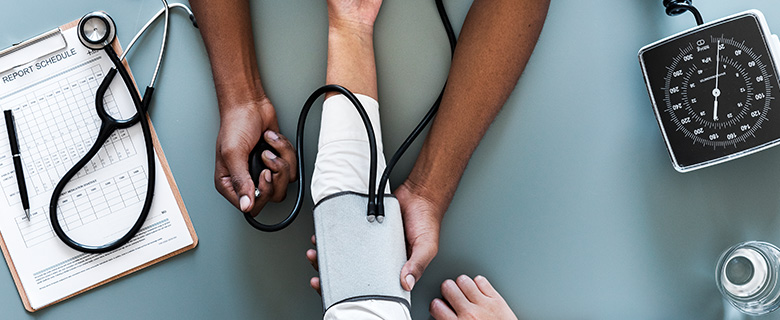
Table of Contents
What Is High Blood Pressure?
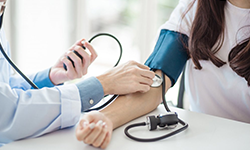
Hypertension Symptoms And What Causes High Blood Pressure?
Hypertension is a dangerous but silent condition as high blood pressure symptoms are mostly not visible. But if left untreated, uncontrolled high BP can be harmful to the body’s vital organs (heart, arteries, brain and kidneys) and can increase the risk of heart attacks, stokes, dementia, memory loss, kidney failures etc. In most patients there are no specific causes of sudden hypertension. Dizziness, headaches, blurred vision, trouble breathing, chest pain etc. can be some early signs of high blood pressure, and although not to be ignored, even these are not conclusive.
How To Reduce Blood Pressure?
The best way to keep the blood pressure in check is to lead a healthy lifestyle. Doctors recommend an altered lifestyle as the first line of treatment for patients diagnosed with prehypertension. If that proves insufficient, then medications are prescribed.
Here Are 7 Tips To Keep High BP In Check:
- Watch Your Diet –
What you eat is affects your health directly. A diet high in potassium and low in sodium is recommended for people who need to keep their high blood pressure in check. High salt intake increases blood pressure so make sure that you keep your salt intake between 1,500-2,300 mg per day. Many doctors recommend the Dietary Approaches to Stop Hypertension (DASH) diet to patients who have been diagnosed with hypertension. The DASH diet helps lower blood pressure and stresses on a high fiber, low sodium food intake with lots of fruits & vegetables, whole grains, nuts, low-fat dairy products, lean meats… in short all healthy foods to reduce blood pressure
- Exercise Regularly –
Experts recommend that everyone should get at least 35-40 minutes of physical activity per day. Regular exercise can reduce blood pressure (drop of 4 -9 points). Aerobic activities such as brisk walking, jogging, dancing, cycling, and swimming get the heart pumping fast and are the preferred forms of exercise. If possible, try and do moderate-intensity aerobic exercise at least 2 and a half hours per week, or vigorous-intensity aerobic exercise for 1 hour and 15 minutes per week.
- Manage Your Weight –
Being obese or overweight increases the risk of developing prehypertension and subsequently high blood pressure. More weight means the body has more mass so more blood is required to supply oxygen. When more blood is circulated across the body it puts more pressure on the arteries thus increasing blood pressure. Maintaining a healthy weight can help you control high blood pressure and reduce your risk for other health problems such as sleep apnea. If your weight is over the target range, lose weight the right way by eating healthy and exercising regularly. Check your weight regularly to ensure you don’t go off target.
- Don’t Smoke –
Smoking raises your blood pressure after every cigarette. Smoking is one of the biggest risk factors for developing high blood pressure. Also, smoking hurts your health in the long term and puts you at higher risk for heart attack and stroke. So, if you don’t smoke, do not start and if you do, quit today to not only keep your blood pressure in control but also for long, healthy life.
- Consume Alcohol Moderately –
Alcohol can be both good and bad for health. Drinking alcohol in moderation, one drink for women and two for men, per day can potentially lower blood pressure by about 4 mm Hg. But excess consumption of alcohol can raise blood pressure by several points, reduce the effectiveness of blood pressure medications and also cause weight gain.
- Keep Stress Levels In Control –
High levels of stress can increase blood pressure levels. Learning how to relax and manage stress can improve emotional and physical health and help keep high blood pressure in check. Stress management techniques such as exercising, listening to music, focusing on something calm or peaceful, yoga and meditating can create happy feelings and boost feel-good chemicals called endorphins which can help lower blood pressure.
- Monitor Blood Pressure Levels Regularly –
As high blood pressure has no distinct symptoms, the only way to keep a check on it is to regularly monitor blood pressure readings. Make sure you make regular doctor appointments to see that the blood pressure is well controlled. In addition, now blood pressure monitors are available widely so you can also check blood pressure at home, gauge if the lifestyle changes that you have incorporated are working or not. But before starting home monitoring, make sure you get it approved by your doctor. For people already diagnosed with blood pressure, it is necessary to prevent it from getting out of control and causing further health complications. For people who are in the risk category (prehypertension), it is important that they don’t cross over to high BP. Follow the health tips, consult your doctor regularly for monitoring your blood pressure and follow the treatment plan (healthy lifestyle + medications, if required) that they prescribe for keeping blood pressure in check.
Note of caution: This article is for information purposes only. Always consult your doctor in case of any blood pressure or other health-related problems.
Disclaimer
The information contained in this article/s is to educate / spread awareness in relation to hypertension and other diseases to the public at large. The contents of this article/s are created and developed by BPinControl.in (“The Website”) through its authors, which has necessary, authorisations, license, approvals, permits etc to allow usage of this articles on The Website. The views and opinions expressed in this article are views, opinions of the respective authors and are independently endorsed by doctors. Although great care has been taken in compiling and checking the information in this article/s, The Website shall not be responsible, or in any way liable for any errors, omissions or inaccuracies in this article/s whether arising from negligence or otherwise, or for any consequences arising therefrom. The content of this article is not a substitute for any medical advice. The Website shall not be held responsible or liable for any consequence arising out of reliance on the information provided in the article.

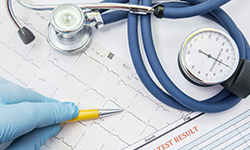
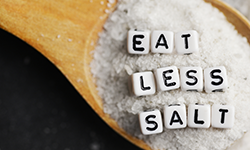
 What you eat is affects your health directly. A diet high in potassium and low in sodium is recommended for people who need to keep their high blood pressure in check. High salt intake increases blood pressure so make sure that you keep your salt intake between 1,500-2,300 mg per day. Many doctors recommend the Dietary Approaches to Stop Hypertension (DASH) diet to patients who have been diagnosed with hypertension. The
What you eat is affects your health directly. A diet high in potassium and low in sodium is recommended for people who need to keep their high blood pressure in check. High salt intake increases blood pressure so make sure that you keep your salt intake between 1,500-2,300 mg per day. Many doctors recommend the Dietary Approaches to Stop Hypertension (DASH) diet to patients who have been diagnosed with hypertension. The 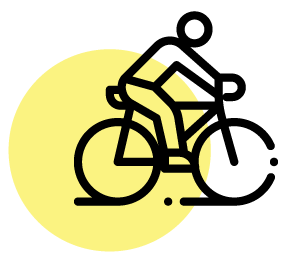 Experts recommend that everyone should get at least 35-40 minutes of physical activity per day. Regular exercise can reduce blood pressure (drop of 4 -9 points). Aerobic activities such as brisk walking, jogging, dancing, cycling, and swimming get the heart pumping fast and are the preferred forms of exercise. If possible, try and do moderate-intensity aerobic exercise at least 2 and a half hours per week, or vigorous-intensity aerobic exercise for 1 hour and 15 minutes per week.
Experts recommend that everyone should get at least 35-40 minutes of physical activity per day. Regular exercise can reduce blood pressure (drop of 4 -9 points). Aerobic activities such as brisk walking, jogging, dancing, cycling, and swimming get the heart pumping fast and are the preferred forms of exercise. If possible, try and do moderate-intensity aerobic exercise at least 2 and a half hours per week, or vigorous-intensity aerobic exercise for 1 hour and 15 minutes per week. Being obese or overweight increases the risk of developing
Being obese or overweight increases the risk of developing  Smoking raises your blood pressure after every cigarette. Smoking is one of the biggest risk factors for developing high blood pressure. Also, smoking hurts your health in the long term and puts you at higher risk for heart attack and stroke. So, if you don’t smoke, do not start and if you do, quit today to not only keep your
Smoking raises your blood pressure after every cigarette. Smoking is one of the biggest risk factors for developing high blood pressure. Also, smoking hurts your health in the long term and puts you at higher risk for heart attack and stroke. So, if you don’t smoke, do not start and if you do, quit today to not only keep your  Alcohol can be both good and bad for health. Drinking alcohol in moderation, one drink for women and two for men, per day can potentially lower blood pressure by about 4 mm Hg. But excess consumption of alcohol can raise blood pressure by several points, reduce the effectiveness of blood pressure medications and also cause weight gain.
Alcohol can be both good and bad for health. Drinking alcohol in moderation, one drink for women and two for men, per day can potentially lower blood pressure by about 4 mm Hg. But excess consumption of alcohol can raise blood pressure by several points, reduce the effectiveness of blood pressure medications and also cause weight gain.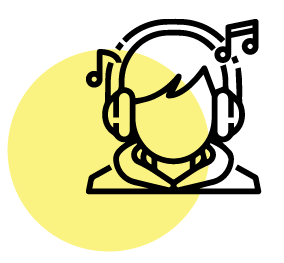 High levels of stress can increase
High levels of stress can increase 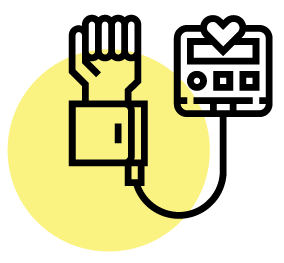 As high blood pressure has no distinct symptoms, the only way to keep a check on it is to regularly monitor blood pressure readings. Make sure you make regular doctor appointments to see that the blood pressure is well controlled. In addition, now blood pressure monitors are available widely so you can also check blood pressure at home, gauge if the lifestyle changes that you have incorporated are working or not. But before starting home monitoring, make sure you get it approved by your doctor. For people already diagnosed with blood pressure, it is necessary to prevent it from getting out of control and causing further health complications. For people who are in the risk category (prehypertension), it is important that they don’t cross over to high BP. Follow the health tips, consult your doctor regularly for monitoring your blood pressure and follow the treatment plan (healthy lifestyle + medications, if required) that they prescribe for keeping blood pressure in check.
As high blood pressure has no distinct symptoms, the only way to keep a check on it is to regularly monitor blood pressure readings. Make sure you make regular doctor appointments to see that the blood pressure is well controlled. In addition, now blood pressure monitors are available widely so you can also check blood pressure at home, gauge if the lifestyle changes that you have incorporated are working or not. But before starting home monitoring, make sure you get it approved by your doctor. For people already diagnosed with blood pressure, it is necessary to prevent it from getting out of control and causing further health complications. For people who are in the risk category (prehypertension), it is important that they don’t cross over to high BP. Follow the health tips, consult your doctor regularly for monitoring your blood pressure and follow the treatment plan (healthy lifestyle + medications, if required) that they prescribe for keeping blood pressure in check.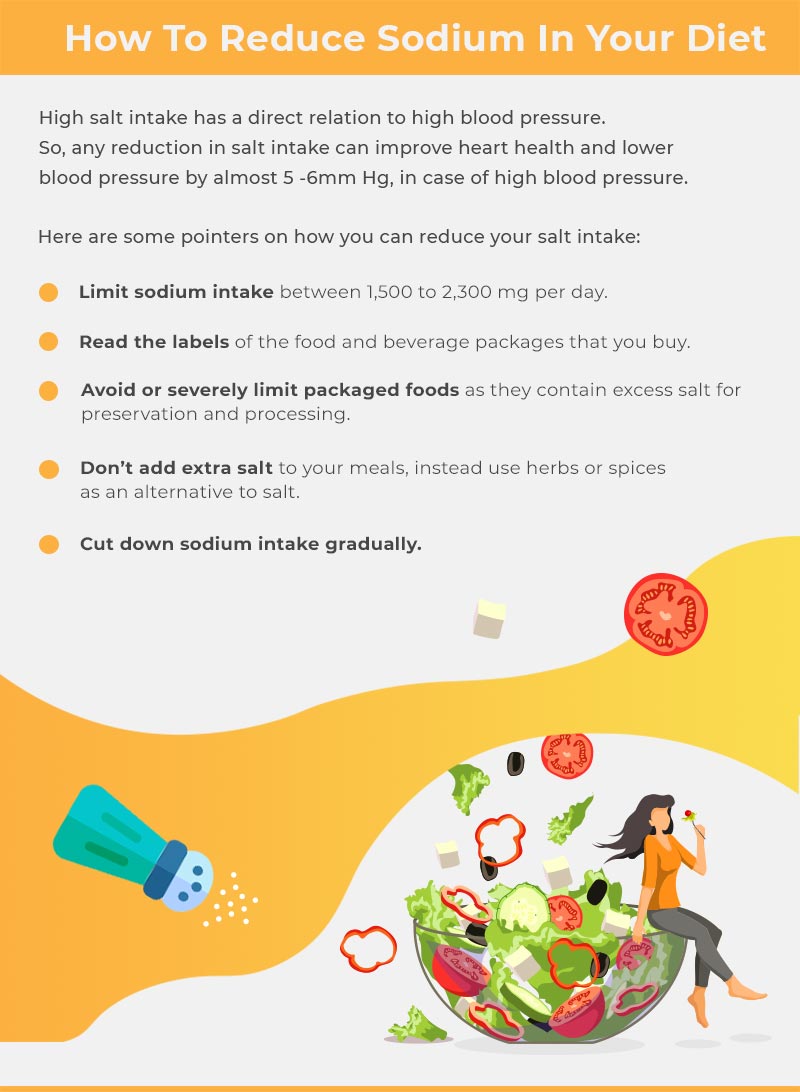

Comments (0)
No comments found.Add your comment